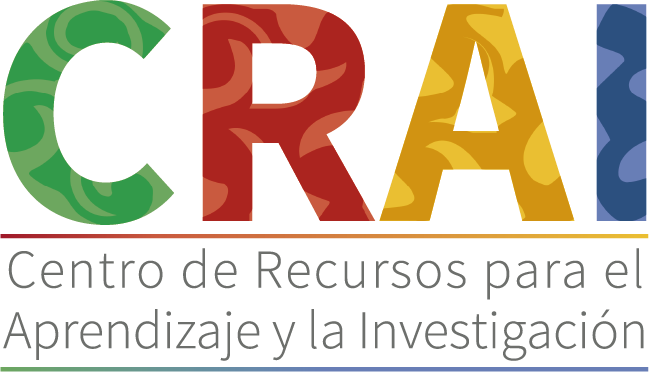| 000 -ENCABEZADO |
|---|
| Número de control [NR] |
04483cam a2200325 i 4500 |
| 001 - NÚMERO DE CONTROL |
|---|
| control field |
18084110 |
| 005 - FECHA Y HORA DE LA ÚLTIMA TRANSACCIÓN |
|---|
| control field |
20190614102404.0 |
| 008 - DE LONGITUD FIJA DE DATOS DE ELEMENTOS - INFORMACIÓN GENERAL |
|---|
| Elementos de longitud fija [NR] |
190614s2015 enka b 001 0 eng d |
| 010 ## - NUMERO DE CONTROL DE LA BIBLIOTECA DEL CONGRESO (LC) [NR] |
|---|
| Número de control LC [NR] |
2014004365 |
| 020 ## - NUMERO INTERNACIONAL NORMALIZADO PARA LIBROS [R] |
|---|
| Número Internacional Normalizado del libro [NR] |
9780415730341 |
| 020 ## - NUMERO INTERNACIONAL NORMALIZADO PARA LIBROS [R] |
|---|
| ISBN Cancelado/ Invalidado [R] |
9781315850283 |
| Número Internacional Normalizado del libro [NR] |
9780367178819 |
| 040 ## - FUENTE DE CATALOGACION [NR] |
|---|
| Agencia de catalogación original [NR] |
CO-BoUCM |
| Idioma de catalogación [NR] |
spa |
| Quien Cataloga |
Saul Niño |
| Quien Clasifica |
Saul Niño |
| 041 0# - CODIGO DE IDIOMA [R] |
|---|
| Código de idioma para texto/pista de sonido o título separado [R] |
Inglés |
| 082 04 - NUMERO DE CLASIFICACION DECIMAL DEWEY [R] |
|---|
| Número de clasificación [R] |
331 I433e |
| Número de la edición [NR] |
20 |
| 245 04 - MENCION DE TITULO [NR] |
|---|
| Título [NR] |
The informal economy in developing countries |
| Mención de responsabilidad, etc. [NR] |
edited by Jean-Pierre Cling, Stéphane Lagrée, Mireille Razafindrakoto, François Roubaud |
| 260 ## - PUBLICACION, DISTRIBUCION, ETC. (PIE DE IMPRENTA) [R] |
|---|
| Lugar de publicación, distribución, etc. [R] |
London |
| -- |
New York |
| Nombre del editor, distribuidor, etc. [R] |
Routledge |
| Fecha de publicación, distribución, etc. [R] |
2015 |
| 300 ## - DESCRIPCION FISICA [R] |
|---|
| Extensión [R] |
xxxi, 334 páginas |
| 520 ## - NOTA DE RESUMEN, ETC. [R] |
|---|
| Nota de sumario, etc. [NR] |
"Informality is ubiquitous in most developing countries. Understanding the informal economy is therefore of utmost importance from a political, economic and social point of view. Paradoxically, despite its economic importance, knowledge is extremely limited regarding the informal economy. It remains largely unrecognized by researchers, is neglected by politicians, and is even negatively perceived as it is meant to disappear with development.This book aims to amend this situation by presenting recent high level research which studies the informal sector and informal employment. Fresh research into this subject is presented through empirical analysis which covers Asia, Africa and Latin America. Each chapter relies on data and a detailed knowledge of the context of the countries studied in order to question the dominant schools of thought on the origins and causes of informality. The results provide interesting insights into the constraints faced by informal workers, the dynamics of the informal economy and its link with poverty issues. On the basis of the evidences provided by results adequate policies could be defined to address informality issues. The principal characteristics of the informal sector testify to some profound similarities between developing countries: low qualifications and the precariousness of jobs, mediocre incomes and working conditions, atomization of production units and lack of articulation with the formal economy, etc. This general statement does not contradict the observation that there is a high level of heterogeneity in the sector and in informal employment within each country, confirmed by several chapters in this work. In the absence of a sufficient number of job creations, the informal sector essentially constitutes a refuge for workers seeking and is here to stay in the short and medium term, even in emerging countries"-- |
| 520 ## - NOTA DE RESUMEN, ETC. [R] |
|---|
| Nota de sumario, etc. [NR] |
"The informal economy plays a predominant role in developing countries and is a domain that remains largely ignored by researchers, and is neglected and often negatively perceived by public policies. A better understanding of how their economies work thus implies a better understanding of the informal economy. This book takes a fresh look at research in this domain and covers Asia, Africa and Latin America. One key message stands out in this book is that the principal characteristics of the informal economy are relatively close in all developing countries, with highly precarious contracts and mediocre salaries and working conditions. This does not exclude variations depending on the salary levels of each country, as well as the existence of great heterogeneity within each country. In so far as the informal economy is condemned to continue, even in emerging countries, the defining of support policies constitutes a major development challenge. This book contains a selection of papers presented during an international conference organised in May 2010 in Hanoi, Vietnam by the Vietnam Academy of Social Sciences and the Institut de Recherche pour le Dloppement, with the support of the Agence Franaise de Dloppement and several international organisations: the World Bank, the International Labour Organisation, the United Nations development programme and the Department for International Development"-- |
| 546 ## - NOTA DE IDIOMA [R] |
|---|
| Nota de idioma [NR] |
Texto en inglés |
| 650 #7 - ASIENTO SECUNDARIO DE MATERIA - TERMINO TEMATICO [R] |
|---|
| Término temático o nombre geográfico como elemento de entrada [NR] |
Economía informal |
| Subdivisión geográfica [R] |
Desarrollo de países |
| 9 (RLIN) |
13696 |
| 650 #7 - ASIENTO SECUNDARIO DE MATERIA - TERMINO TEMATICO [R] |
|---|
| Término temático o nombre geográfico como elemento de entrada [NR] |
Economía laboral |
| 9 (RLIN) |
13700 |
| 650 #7 - ASIENTO SECUNDARIO DE MATERIA - TERMINO TEMATICO [R] |
|---|
| Término temático o nombre geográfico como elemento de entrada [NR] |
Economía del trabajo |
| Subdivisión geográfica [R] |
Desarrollo de países |
| 9 (RLIN) |
26481 |
| 650 #7 - ASIENTO SECUNDARIO DE MATERIA - TERMINO TEMATICO [R] |
|---|
| Término temático o nombre geográfico como elemento de entrada [NR] |
Microempresas |
| Subdivisión geográfica [R] |
Desarrollo de países |
| 9 (RLIN) |
19490 |
| 700 1# - ASIENTO SECUNDARIO - NOMBRE PERSONAL [R] |
|---|
| Nombre personal [NR] |
Cling, Jean-Pierre |
| Término de relación [R] |
editor |
| 9 (RLIN) |
97323 |
| 700 1# - ASIENTO SECUNDARIO - NOMBRE PERSONAL [R] |
|---|
| Nombre personal [NR] |
Lagrée, Stéphane |
| Término de relación [R] |
editor |
| 9 (RLIN) |
97324 |
| 700 1# - ASIENTO SECUNDARIO - NOMBRE PERSONAL [R] |
|---|
| Nombre personal [NR] |
Razafindrakoto, Mireille |
| Término de relación [R] |
editor |
| 9 (RLIN) |
97325 |
| 700 1# - ASIENTO SECUNDARIO - NOMBRE PERSONAL [R] |
|---|
| Nombre personal [NR] |
Roubaud, Francois |
| Término de relación [R] |
editor |
| 9 (RLIN) |
97326 |
| 942 ## - ELEMENTOS DE ENTRADA AGREGADOS (KOHA) |
|---|
| Sistema de clasificación |
|
| Tema principal |
Economía |
| Tipo de ítem principal el descrito en 300a |
Libro |
| Edición |
1 |
| Clasificación |
331 |
| Parte restante de la signatura top. |
I433e |

Escuela de administración
Facultad de Jurisprudencia
Facultad de Ciencias
Escuela de Ciencias
Escuela de Medicina
Facultad de Economía
Facultad de Estudios
Facultad de Creación
Escuela de Ingeniería,
Otras Ofertas
 Historia y símbolos
Historia y símbolos
 Enfoque estratégico
Enfoque estratégico
 Gobierno universitario
Gobierno universitario
 Playbok - Nuestros pilares de transformación
Playbok - Nuestros pilares de transformación
 Protocolo de seguridad
Protocolo de seguridad
 Archivo histórico
Archivo histórico
 Portafolio de becas, descuentos y apoyo financiero
Portafolio de becas, descuentos y apoyo financiero
 Casa UR
Casa UR






 Proyección social
Proyección social Filantropía
Filantropía Hagámoslo posible
Hagámoslo posible








